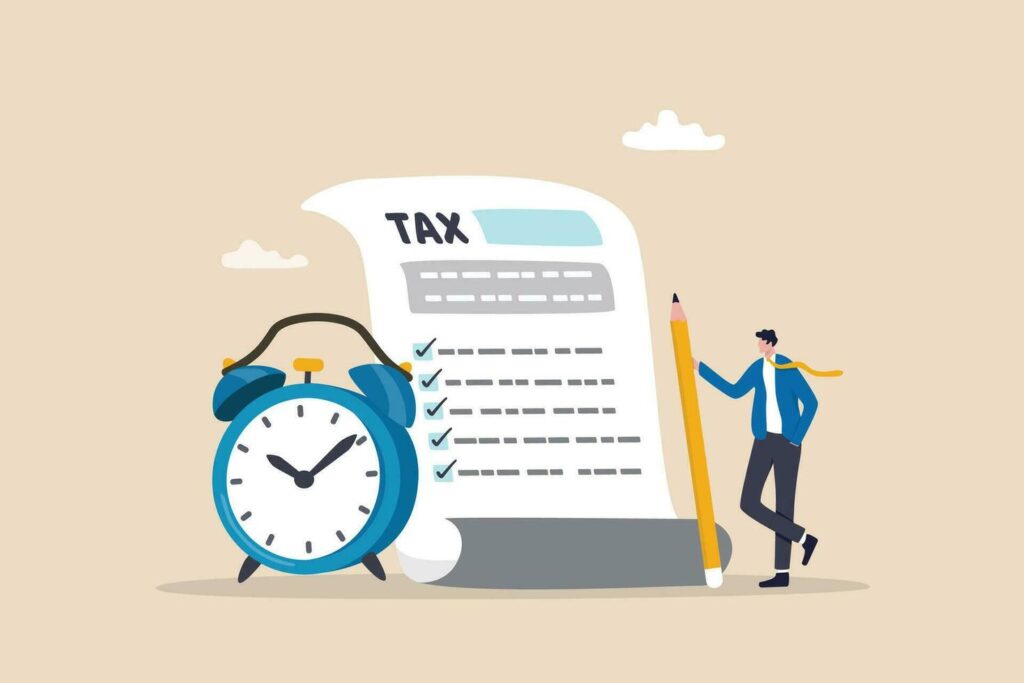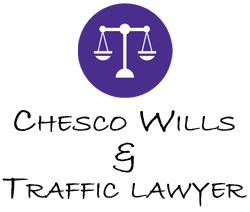In today’s complex financial world, tax efficiency is a critical component of any smart financial plan. Understanding how to minimize your tax liability can help you maximize your wealth and achieve your financial goals. In this article, we will explore the basics of tax efficiency, discuss strategies for enhancing tax efficiency, navigate the tax landscape, explore advanced tax planning techniques, and delve into the future of tax efficiency.
Understanding Tax Efficiency
The Basics of Tax Efficiency
Before we dive into the strategies for enhancing tax efficiency, it’s important to grasp the fundamentals. Tax planning services by expert financial advisor Sydney refers to the ability to minimize the amount of taxes paid on investment income, capital gains, and other sources of taxable income. By carefully planning your financial decisions and taking advantage of the tax code, you can legally reduce your tax burden.
Importance of Tax Efficiency in Financial Planning
Why is tax efficiency crucial in financial planning? The answer lies in the significant impact taxes can have on your overall wealth accumulation. By being tax-efficient, you can keep more of your hard-earned money and potentially enjoy higher long-term returns on your investments. Moreover, tax efficiency can play a pivotal role in reaching milestones such as homeownership, funding your children’s education, or enjoying a comfortable retirement.
Let’s take a closer look at how tax efficiency can make a difference in your financial journey. Imagine you have two individuals, both earning the same annual income and investing in the same assets. However, one of them is tax-efficient while the other is not. Over time, the tax-efficient individual ends up with a significantly larger investment portfolio due to the reduced tax burden. This means they have more funds available to achieve their financial goals.

Furthermore, tax efficiency goes beyond simply reducing your tax liability. It also involves strategic planning to optimize your investments in a way that minimizes taxable events. For example, by strategically harvesting capital losses to offset capital gains, you can effectively reduce your overall tax liability. Additionally, utilizing tax-advantaged accounts such as IRAs or 401(k)s can provide you with tax-free growth or tax deductions, further enhancing your financial position.
Another aspect to consider is the potential for tax-efficient charitable giving. By donating appreciated assets instead of cash, you can not only support causes you care about but also potentially receive a tax deduction for the fair market value of the asset. This allows you to give back while also benefiting from tax savings.
In conclusion, tax efficiency is a fundamental aspect of financial planning that can have a significant impact on your wealth accumulation and long-term financial goals. By understanding the basics of tax efficiency and implementing strategic planning, you can optimize your financial decisions and keep more of your hard-earned money. Remember, consulting with a qualified tax professional or financial advisor can provide valuable guidance tailored to your specific situation.
Strategies for Enhancing Tax Efficiency
Utilizing Tax-Advantaged Accounts
One of the most effective strategies for enhancing tax efficiency is to take advantage of tax-advantaged accounts such as individual retirement accounts (IRAs), 401(k)s, or health savings accounts (HSAs). These accounts offer tax advantages such as tax-deductible contributions, tax-deferred growth, or tax-free withdrawals, enabling you to optimize your tax savings while simultaneously building wealth for the future.
Let’s delve deeper into the world of tax-advantaged accounts. IRAs, for instance, come in two main varieties: traditional and Roth. Traditional IRAs allow you to make tax-deductible contributions, which means you can reduce your taxable income for the year. On the other hand, Roth IRAs don’t offer immediate tax benefits, but they allow for tax-free withdrawals in retirement. This flexibility can be advantageous if you expect to be in a higher tax bracket when you retire.
401(k)s, on the other hand, are employer-sponsored retirement plans that offer tax advantages similar to traditional IRAs. However, 401(k)s often come with the added benefit of employer matching contributions, which can significantly boost your retirement savings. Additionally, some employers offer a Roth 401(k) option, combining the benefits of a traditional 401(k) with the tax-free withdrawals of a Roth IRA.
Capital Gain Tax Strategies
Capital gains tax can eat into your investment returns. However, there are strategies you can employ to mitigate this tax burden. By using tax-loss harvesting, for example, you can offset gains by selling investments that have experienced losses. This technique allows you to minimize your overall tax liability by utilizing the losses to offset any taxable gains.
Another strategy to consider is holding investments for at least one year. Doing so can qualify you for long-term capital gains rates, which are typically more advantageous than short-term rates. Long-term capital gains rates are often lower, allowing you to keep a larger portion of your investment profits. So, if you have the flexibility to hold onto your investments for a longer period, it may be worth considering to optimize your tax efficiency.
Retirement Savings and Tax Efficiency
Retirement savings represent a cornerstone of financial planning, and being tax-efficient in this area can make a significant difference. Contributing to retirement accounts like traditional IRAs or 401(k)s allows you to benefit from tax deductions on your contributions. This means that the money you contribute to these accounts is deducted from your taxable income, reducing your overall tax liability.
Furthermore, maximizing contributions to these accounts can lead to tax-deferred growth. This means that any investment gains within the account are not subject to immediate taxes, allowing your savings to grow more efficiently over time. Additionally, when you retire and start withdrawing from these accounts, you may potentially be in a lower tax bracket, resulting in lower tax rates on your withdrawals.
It’s important to note that tax laws and regulations can change over time, so staying informed and consulting with a financial advisor can help you navigate the complexities of tax-efficient strategies. By utilizing tax-advantaged accounts, employing capital gain tax strategies, and optimizing your retirement savings, you can enhance your tax efficiency and work towards achieving your financial goals.

Navigating the Tax Landscape
Understanding Tax Laws and Regulations
Tax laws and regulations can be complex and ever-changing. Staying informed about the latest updates and understanding how they apply to your financial situation is essential for maximizing tax efficiency. Consulting with a tax professional or financial advisor can help you navigate these complexities and make informed decisions.
For example, did you know that tax laws can vary depending on your location? Different states may have different tax rates and regulations, which can significantly impact your overall tax liability. Understanding these nuances can help you make strategic financial decisions and potentially save you money.
Furthermore, tax laws are not limited to just income taxes. There are also estate taxes, gift taxes, and property taxes, among others. Each type of tax has its own set of rules and regulations, and understanding how they interact with one another is crucial for comprehensive financial planning.
Role of Tax Professionals in Financial Planning
Tax professionals, such as certified public accountants (CPAs), can provide invaluable guidance when it comes to tax efficiency in financial planning. They can help you maximize deductions, identify potential tax credits, and ensure compliance with tax laws. In addition, tax professionals can review your financial plan holistically to identify areas for tax optimization.
One area where tax professionals can make a significant impact is in retirement planning. They can help you understand the tax implications of different retirement account options, such as traditional IRAs, Roth IRAs, and 401(k)s. By strategically allocating your retirement savings across these accounts, you can potentially minimize your tax burden in retirement and maximize your after-tax income.
Moreover, tax professionals can also assist in tax-efficient investment strategies. They can help you understand the tax consequences of different investment vehicles, such as stocks, bonds, and real estate. By strategically structuring your investments, you can potentially minimize your tax liability and maximize your investment returns.

Advanced Tax Planning Techniques
Estate Planning and Tax Efficiency
Estate planning involves managing your assets and minimizing tax liabilities that may arise upon your passing. By utilizing tools such as trusts, charitable giving, and properly structured wills, you can leave a lasting legacy while minimizing estate taxes. Estate planning not only ensures the smooth transfer of assets but can also provide tax benefits for your beneficiaries.
When it comes to estate planning, there are various advanced tax planning techniques that can be employed to optimize tax efficiency. One such technique is the use of a family limited partnership (FLP). By establishing an FLP, you can transfer assets to your family members while retaining control over them. This not only allows for the seamless transfer of assets but also provides potential tax benefits, such as reducing the value of your taxable estate.
Charitable Giving and Tax Deductions
Charitable giving offers a dual benefit: helping causes you care about and providing tax deductions. By donating to qualified charitable organizations, you can lower your taxable income while making a positive impact. Tax-efficient giving strategies such as donor-advised …

